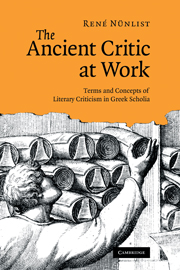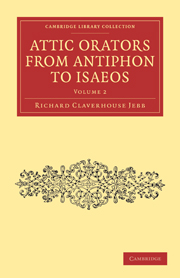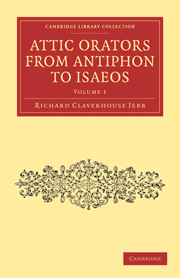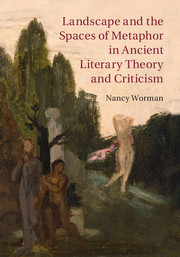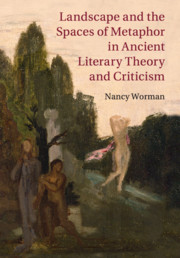The Ancient Critic at Work
The large but underrated corpus of Greek scholia, the marginal and interlinear notes found in manuscripts, is a very important source for ancient literary criticism. The evidence of the scholia significantly adds to and enhances the picture that can be gained from studying the relevant treatises (such as Aristotle's Poetics): scholia also contain concepts that are not found in the treatises, and they are indicative of how the concepts are actually put to use in the progressive interpretation of texts. This book also demonstrates that it is vital to study both ancient terminology and the cases where a particular phenomenon is simply paraphrased. Nineteen thematic chapters provide a repertoire of the various terms and concepts of ancient literary criticism. The relevant witnesses are extensively quoted in Greek and English translation. A glossary of Greek terms (with translation) and several indices enable the book also to be used for reference.
- Was the first book to examine the whole range of the scholia
- Arranges the material thematically to enhance the book's utility
- Includes a glossary of Greek terms and several indices to enable use as a reference work
Product details
March 2009Hardback
9780521850582
458 pages
235 × 161 × 30 mm
0.86kg
Available
Table of Contents
- Introduction
- Part I:
- 1. Plot
- 2. Time
- 3. Narrative and speech
- 4. Focalisation
- 5. Effects on the reader
- 6. Gaps and omissions
- 7. Poetic licence
- 8. Authentication
- 9. Style
- 10. Allusions, hints, hidden meanings
- 11. Characters
- 12. Mythography
- Part II:
- 13. The gods in Homer
- 14. Homeric similes
- 15. Epithets
- 16. Type scenes
- 17. Homeric speeches
- 18. Reverse order
- 19. Staging, performance and dramaturgy
- Epilogue
- Glossary of Greek terms.

